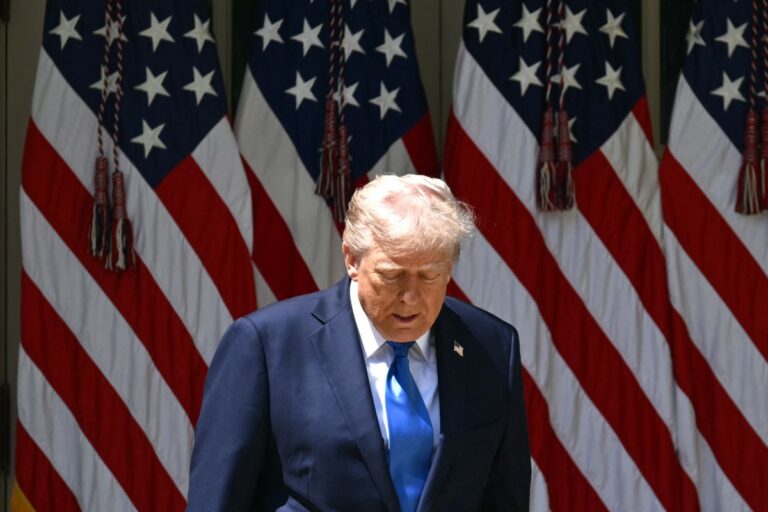China’s exports missed expectations but expanded 4.4 per cent year-on-year in August, official data showed Monday, with falling US shipments offset by a jump in those to Southeast Asia and Europe.
Trade tensions between Beijing and Washington have been on a rollercoaster ride in 2025, with both sides slapping escalating tariffs on each other.
Exports to the United States — China’s largest single-country trading partner — continued to fall in August, Monday’s data showed, sinking 11.8 per cent from the previous month and 33.1 per cent from a year earlier.
However, shipments to the European Union jumped 10.4 per cent and those to the Association of Southeast Asian nations rose 22.5 per cent year-on-year.
Overall, though exports failed to meet a Bloomberg forecast of 5.5 per cent.
Imports similarly did not meet expectations, growing 1.3 per cent year-on-year in August, compared with a forecast of 3.4 per cent.
Zhiwei Zhang, president and chief economist at Pinpoint Asset Management, said the “frontloading” of exports — accelerating shipments in anticipation of further tariffs — is “probably fading away”.
The resilience of Beijing’s exports this year can also be attributed to Chinese businesses pushing for higher market share in other countries, exacerbated by weak domestic demand, he said.
Southeast Asia and China have deeply interwoven supply chains, and Washington has long accused Chinese manufacturers of “transshipping” — having products pass through a country to avoid harsher trade barriers elsewhere.
“Trade diversion remains evident,” Yue Su, principal economist at the Economist Intelligence Unit, said.
“Much of this reflects… supply-chain diversification to avoid higher tariffs, a practice also seen during the first US-China trade war,” Su added.
– Shaky truce –
Beijing has set an official goal of around five per cent growth this year.
But it has struggled to maintain a strong economic recovery from the pandemic, as it fights a debt crisis in its massive property sector, chronically low consumption and elevated youth unemployment.
China’s factory output ticked up in August but still recorded a fifth straight month of contraction, official data showed, in a further sign that trade tensions were hitting the export-dependent economy.
At one point this year, tit-for-tat US-China tariffs reached triple digits on both sides, snarling supply chains as many importers halted shipments to try and wait for the governments to settle matters.
Since then, Washington and Beijing have reached an agreement to de-escalate tensions, temporarily lowering tariffs to 30 per cent on the United States’ side and 10 per cent on China’s part.
In August, they delayed the threatened reimposition of higher tariffs on each other’s exports for another 90 days — meaning the pause on steeper duties will be in place until November 10.
Analysts say China’s trade will face challenges in the rest of the year as uncertainties linger.
The temporary boost from the US-China trade truce is fading, while the US is raising tariffs on shipments rerouted via other countries, said Zichun Huang, China Economist at Capital Economics, in a note on Monday.
“Exports are likely to come under pressure in the near term,” wrote Huang.




